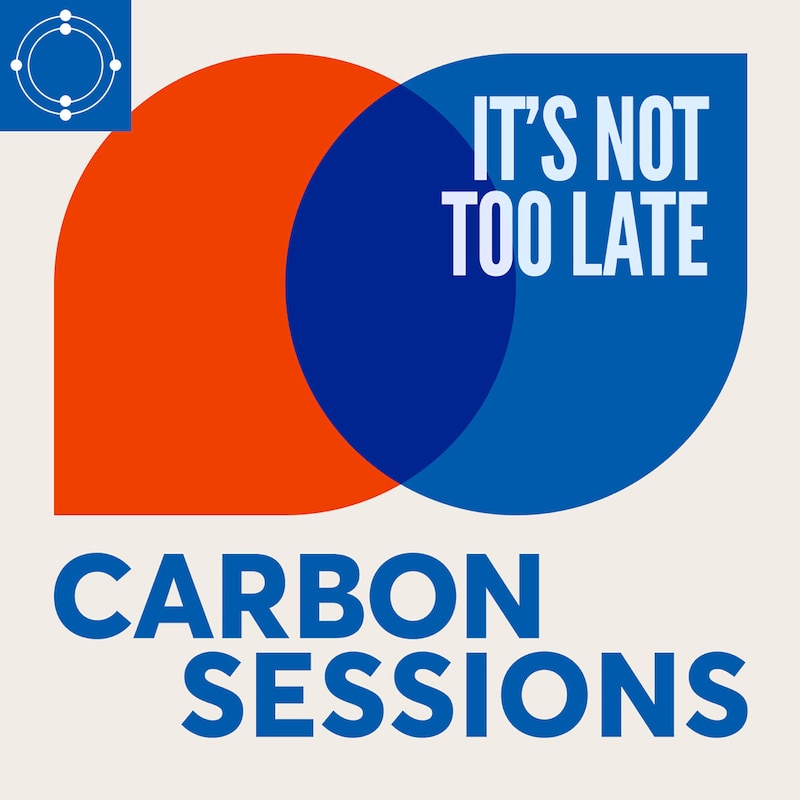
Shownotes
Episode Summary: This episode is an excerpt from a past episode about lawns and batching errands
Jenn and Olabanji talked about how the maintenance of lawns in many areas of the world has a larger carbon footprint than what is saved by having the lawn in the first place.
They talk about how lawns can be repurposed or just treated differently so that they can be more environmentally friendly.
You can also listen to the full episode here
For more information on the project and to order your copy of the Carbon Almanac, visit thecarbonalmanac.org
Want to join in the conversation?
Visit thecarbonalmanac.org/podcasts and send us a voice message on this episode or any other climate-related ideas and perspectives.
Don’t Take Our Word For It, Look It Up!
You can find out more on pages 202, 210, 234 and 6 of the Carbon Almanac and on the website you can tap the footnotes link and type in 218, 108, 254, 105 and 008.
-----
Featuring Carbon Almanac Contributors Jenn Swanson and Olabanji Stephen
From Langley in British Columbia, Canada, Jenn is a Minister, Coach, Writer and Community Connector, helping people help themselves.
Olabanji is a Creative Director and visual designer that helps brands gain clarity, deliver meaningful experiences and build tribes through Design & Strategy. He founded Jorney - a community designed to help people stay productive, accountable, and do their best work.
-----
The CarbonSessions Podcast is produced and edited by Leekei Tang, Steve Heatherington and Rob Slater.
Transcripts
Do you have a lawn?
Speaker:Ola, Bunge?
Speaker:Uh, I don't have a lawn, but there are lawns around here.
Speaker:. And the weird thing is I see them when they're being maintained and it's like a
Speaker:lot of people with the lawnmowers and, and all that stuff that makes a lot of noise.
Speaker:Um, just to keep the lawns in order.
Speaker:And the lawns are beautiful to see though.
Speaker:But at what cost?
Speaker:Right.
Speaker:I think that's something to think about because I read a research that
Speaker:says if we do the plus and minus, what it cost to maintain the loans, the
Speaker:carbon that it cost to maintain the.
Speaker:Is way more than the carbon that the lawns are able to save us from or keep,
Speaker:which pretty much is hurting the earth.
Speaker:Yeah.
Speaker:So I mean, what are your thoughts, ? Well, we have removed
Speaker:our back lawn from our home.
Speaker:and put in Okay.
Speaker:Uh, flower beds and beds that, uh, with, um, plants that promote pollinators,
Speaker:bees and, and birds and butterflies.
Speaker:Yeah.
Speaker:And put in wood chips all around those flower beds.
Speaker:But we still have a little tiny patch at the front.
Speaker:But I don't use fertilizer or, or chemicals or any of that stuff.
Speaker:And I know that in the summer we have a program in our neighborhood
Speaker:to let your lawn go yellow and people actually put signs up okay.
Speaker:That say, let your lawn go yellow.
Speaker:But there's always one or two people that refuse to do that, and their lawns are
Speaker:perfectly green, even in the drought.
Speaker:And it, it takes water and fertilizer and like you said, noisy tools.
Speaker:And they're so much work.
Speaker:They are beautiful.
Speaker:When they look cared for, but it's a lot.
Speaker:I I was reading that in, in, in the US anyway, where I found the,
Speaker:the statistics lawns consume 3 trillion gallons of water every year.
Speaker:And 2 million gallons of gas for all the mowing and 70
Speaker:million pounds of pesticides.
Speaker:I can't even picture that . Oh my god.
Speaker:That's in one country.
Speaker:That's not even . The worldwide . That's, wow.
Speaker:That's incredible.
Speaker:I know.
Speaker:That's crazy.
Speaker:I know.
Speaker:Wow.
Speaker:Can we just turn our launch into garden?
Speaker:I mean, yeah.
Speaker:Cause I don't know, I think that would be great to have lawns as gardens.
Speaker:It's a lot nicer to have birds and bees and butterflies around.
Speaker:I think that's unlocking another level of nature than, than just
Speaker:the lawns that look a lot from us.
Speaker:Um, it's expensive to maintain and the tools that it takes to
Speaker:maintain, it's just really expensive.
Speaker:Starting from what it costs us, the earth.
Speaker:I don't know.
Speaker:I think we should have garden.
Speaker:Instead of lawns.
Speaker:That's sounds like a movement.
Speaker:Half gardens, not lawns.
Speaker:There's something called the no mo movement where a lot of people
Speaker:are converting their, their lawns into exactly as you say, into.
Speaker:Things that are naturalized or, or getting rid of them and turning them
Speaker:into gardens or edibles, lettuce and, and raspberries and whatever.
Speaker:You can grow in your place, in your area.
Speaker:Fruit trees.
Speaker:And you can grow so much in a tiny amount of space.
Speaker:So, ah, I think it would be nice to get away from Yeah.
Speaker:This, you know, that you have to have a lawn.
Speaker:Yeah.
LYNN:You've been listening to Karbon sessions, a podcast with carbon
LYNN:conversations for every day, with everyone from everywhere in the world.
LYNN:We'd love you to join the carbon sessions so YouTube can share your
LYNN:perspectives from wherever you are.
LYNN:This is a great way for our community to learn from your ideas and
LYNN:experiences, connect and take action.
LYNN:If you want to add your voice to the conversation, go to the carbon.
LYNN:Dot org slash podcast and sign up to be part of a future episode.
LYNN:This podcast is also part of the carbon Almanac network for more
LYNN:information, to sign up for the emails, to join the movement and
LYNN:to order your copy of the carbon Almanac, go to the carbon almanac.org.
LYNN:Be sure to subscribe and join us here again.



